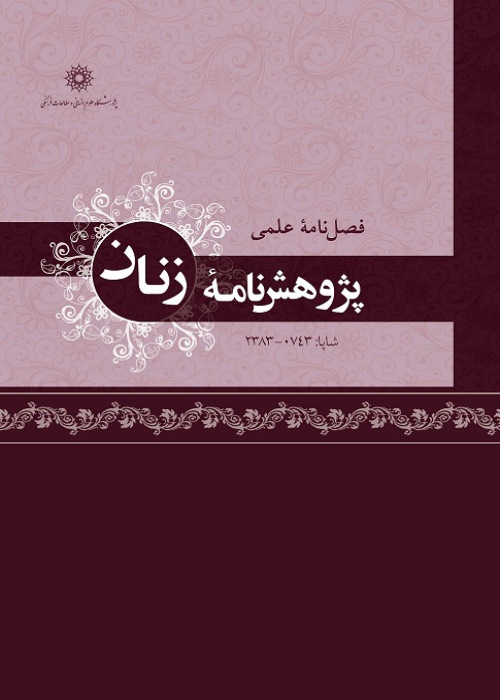Iranian Women's Perspectives on Breast Cancer: A Phenomenological Study
Introduction and the problem statement:
Breast cancer is the most common cancer among women in Iran. Understanding non-affected women’s perspectives of breast cancer can effectively contribute to the development and implementation of preventive interventions against this disease. The aim of this study is to give more clarity to our understanding of Iranian women's perception of breast cancer.
Previous studies:
There are a large number of "qualitative" studies conducted on the lived experiences of "women with breast cancer" of suffering from this disease. As a matter of fact, most of the studies examining "non-infected women’s" knowledge, beliefs, attitudes, and behaviors in relation to breast cancer have used "quantitative" approaches in order to describe demographic variables associated with women's awareness of and performance in performing preventive screenings. The present study is regarded as one of the few qualitative studies on Iranian non-affected women’s views on breast cancer.
In this study, a phenomenological qualitative method was used in order to accurately describe Iranian women’s views about breast cancer, and the data derived from the semi-structured interviews with 39 women aged between 20-40, who were selected in a purposeful manner, were analyzed using the Colaizzi approach. The saturation criterion was employed in order to determine the sample size and evaluate the sampling adequacy. The interviews lasted 25-40 min and were audio-recorded. Also, an interview guide was prepared for the study. The participants were asked to answer a number of questions on four subject areas including (1) women’s knowledge and perception about cancer in general and breast cancer in particular, (2) women's beliefs about the causes of breast cancer (3) women's beliefs about the probability of them getting breast cancer, and (4) women's beliefs about their possible experience in case of breast cancer and any cancer-related perceptions. The data derived from the interviews were analyzed in seven steps by the use of the Colaizzi approach.
This study addressed four aspects including (1) the perceived nature (e.g., scary, symptomatic, shameful, and progressive), (2) the perceived causes (e.g., hereditary, environmental, lifestyle, and psychological factors), (3) the perceived probability (e.g., immunization, acceptance of the possibility of infection), and (4) the perceived outcome of (e.g., harmful to female identity, deadly and treatable if diagnosed early) of the breast cancer in order to better understand Iranian women's point of view about this disease. Thinking about cancer is a terrifying experience for most women. The women who participated in this study considered breast cancer as a symptomatic disease and pointed out the presence of palpable (mass) and visible (bleeding, discharge, and deformity) or understandable (pain) symptoms. They considered this type of cancer as a progressive disease that can spread to other organs and parts of the body. Although they cited the changes that occurred in recent years regarding the acceptance of women-related issues and diseases such as menstruation, uterine cancer, and breast cancer, they believed that suffering from breast cancer, education, and discussion about it is still considered a shameful issue among the Iranian society. In explaining the causes of the disease, they paid more attention to the presence of hereditary factors and considered breast cancer as a hereditary disease. They believed that psychological factors play a critical role in getting cancer. They imagined two paths for the influence of these factors: First, they evaluated the presence of unpleasant emotional moods, e.g., stress and anxiety, as an important factor in the occurrence of breast cancer; and second, they evaluated thinking about the negative aspects of life, e.g., the disease itself, as a cause of the breast cancer.
Several outcomes can be mentioned as implications of this research. Researchers should pay enough attention to the low level of women's information about breast cancer as a result of the lack of proper education in Iran, through either the media or the health education system, due to the taboo of topics related to women's issues and diseases. We found that one of the women's perceptions is that they strongly believe that they are immune to breast cancer; this belief that can be regarded as one of the serious obstacles to searching for information and performing preventive screenings. This immunity that they believe in is based on two main components: the immunity due to not having hereditary factors; and immunity due to avoiding thinking about the disease. Regarding the causes of breast cancer, the emphasis on hereditary factors has led a significant part of women to believe that they are immune to this disease. Therefore, when implementing interventions for increasing breast awareness, the information on the age and genetic background of the disease should be presented with more emphasis and accuracy. In suggesting the reasons for not thinking about breast cancer and, of course, not performing screening, women's other belief about the impact of thinking about the disease and calling it out was among the topics with a high frequency. Therefore, the belief that thinking about the disease is a calling of and prevents women from engaging in awareness training for enhancement of breast health should be corrected by designing interventions targeting at changing the false beliefs. When designing the education related to this disease, women's belief about breast cancer as a scary and deadly disease should be also given enough attention and the high probability of its treatment in case of early diagnosis should be explained. Women's perception that breast cancer is a symptomatic disease leads them to ignore preventive measures for early diagnosis. It also seems that one of the obstacles to preventive measures is the belief in Iranian culture that considers breast cancer as a shameful disease, and consequently, women probably avoid performing breast cancer screening in order to avoid the diagnosis of a shameful disease and the resulting negative reactions. Therefore, the normalization of issues related to breast cancer should be considered when implementing preventive interventions. The results of this study have provided a valuable contribution to the understanding of Iranian women's perception of breast cancer, which can play a critical role in designing interventions targeted at increasing awareness and promoting more effective preventive behaviors among Iranian women, and as a result, reducing deaths caused by late diagnosis of this disease.
- حق عضویت دریافتی صرف حمایت از نشریات عضو و نگهداری، تکمیل و توسعه مگیران میشود.
- پرداخت حق اشتراک و دانلود مقالات اجازه بازنشر آن در سایر رسانههای چاپی و دیجیتال را به کاربر نمیدهد.



